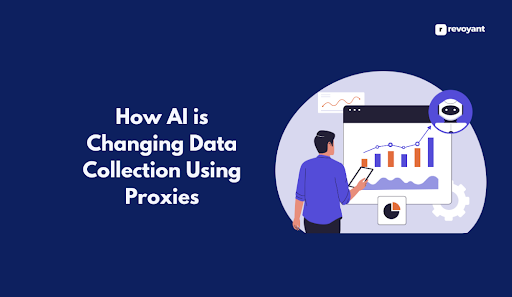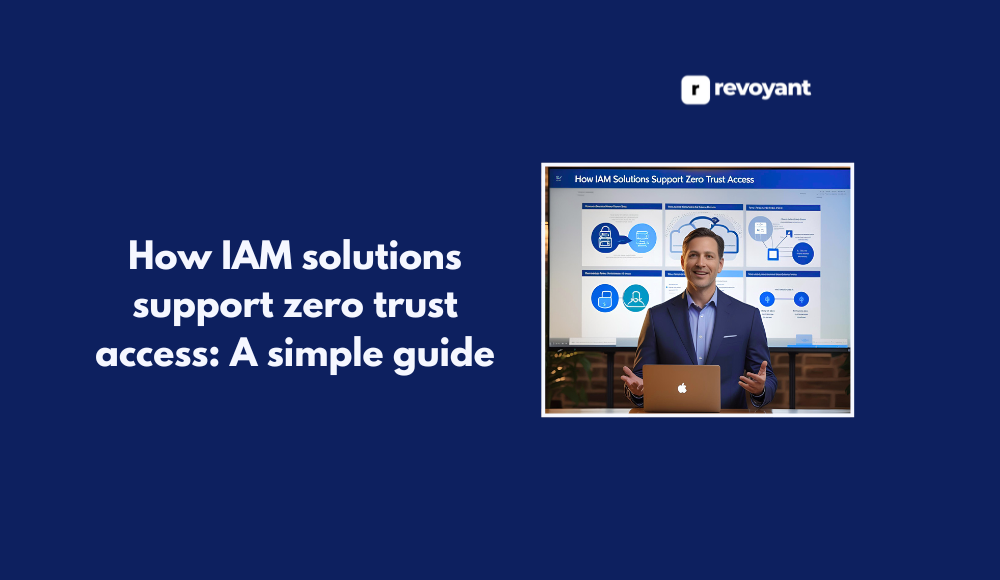Do you ever feel lost trying to keep up with the latest changes in artificial intelligence at work? Many of us know how tough that can be. Agentic AI offers real help for many common problems.
In this blog, you’ll see how top experts use agentic AI right now. You’ll learn why it matters and get simple tips to grow your skills. Get ready to discover how agentic AI is changing the way we solve business tasks today.
Key Takeaways
- Agentic AI makes work easier by handling data and managing workflow updates. It finds information fast and keeps tasks up-to-date.
- People learn agentic AI through courses and practice. They use platforms like Service Now to build and test AI agents.
- New jobs are appearing because of smarter AI agents. Roles like prompt engineer and AI orchestrator engineer are in demand.
- The Ask the Experts community helps people share knowledge about agentic AI. They ask questions, get advice, and stay informed on new trends.
- Testing is important for improving AI agents. Tests check if agents can handle tasks well, making sure they work right before use.
Overview of Agentic AI Use Cases
Agentic AI supports many industries, making tasks simpler and faster. I see these smart systems handling different kinds of work every day, showing real value in technology.
Data Search and Management
I help companies with big archives, like 10,000 articles, by using artificial intelligence to manage data quickly. AI agents improve information retrieval and make it easy for me to find what I need fast.
With these tools, I can organize large files and handle content categorization without much effort. Data mining becomes simple, and search optimization saves me time every day.
With AI for data processing and knowledge management, I keep track of updates with less stress. Sorting through lots of information no longer feels slow or messy since smarter systems do the heavy work for me.
Searching is faster now because advanced data analysis lets AI pull key details from huge sets in seconds.
Workflow Information Update
After using data search and management tools, I often need to keep my workflow current with new updates. Agentic AI helps me find the latest information right in the middle of my tasks.
It does not wait for a separate step. Instead, it brings fresh facts into workflows as they happen. This makes sure that decisions use up-to-date data.
For example, if I manage several projects at once, agentic AI can check one main source and update every related task without missing anything important. The system uses artificial intelligence methods like cognitive computing, machine learning, and natural language processing to process information fast.
This lets me update project details or task plans quickly as soon as new info appears from any connected data stream. By doing this work on its own during regular steps of a flow, agentic AI cuts down time spent searching and reduces errors in reports or planning sheets.
Potential Third Use Case (Brief Mention)
AI assistants can help with data analysis between different tables. For example, I see intelligent agents pulling info from one table and comparing it to another. These AI agents work well together by sharing updates fast; this makes large projects move smoother.
Chatbots or virtual assistants use natural language processing to find facts quickly across many sources.
Machine learning also helps these agents spot trends in huge sets of data. Each agent might focus on a different task but can still talk to others for better results. This teamwork leads into the next part about learning resources and preparation for building smarter AI tools.
Learning Resources and Preparation
I enjoy learning about agentic AI from many online sources, since current courses make it clear and simple. I often practice building and testing these smart agents myself to boost my skills.
On-demand learning courses about agentic AI
I can find many on-demand learning courses about agentic AI right after the knowledge conference. These digital education tools cover artificial intelligence, machine learning, and interactive learning.
I use these self-paced courses to learn at my own speed. The lessons include online videos, practical examples, and quizzes to help me understand how agentic AI works.
Many in my field show strong interest in skill development through elearning options like this. For example, more participants joined sessions on AI agents than expected this year.
Most educational materials focus on real tasks such as technology training for data search or workflow information updates. This wide range of resources makes it easier for me to keep up with new trends and build useful skills fast.
Developing AI Agents in Service Now
After exploring on-demand learning courses about agentic AI, I move to hands-on development using Service Now. To start, I use Agent Studio in Service Now. For access, I sign up for the Kohama release.
This step is key because only users listed in this release can build and test AI agents.
I follow a simple process: first, log into Agent Studio, then pick from ready templates or create my own intelligent agents for service automation and chatbot development. These agents can help with service desk automation, knowledge management systems, or act as virtual assistants using natural language processing and cognitive computing features built into Service Now.
Testing tools make it easy to check if everything works before releasing new solutions. This approach helps me see how artificial intelligence changes daily workflows fast and safely within organizations today.
Testing AI Agents
I use test cases to check AI agent performance. For example, I ask the agent to list articles with certain information. This shows how well it can search data, update records, and solve problems from user input.
AI testing also helps me judge if the agent’s capabilities match what users need. I watch how it manages record management tasks or boosts search optimization. Each artificial intelligence assessment looks at accuracy, speed, and problem-solving skills using real service data.
Through these steps, I evaluate machine learning assessment results in daily business settings to measure improvement areas.
Role of AI Agents and Future Job Roles
I see new job roles growing fast as AI agents become smarter, and if you want to keep up with these changes, read on.
Potential emergence of new roles in the ecosystem
I notice new roles like prompt engineer and AI orchestrator engineer are growing fast. These jobs did not exist a few years ago, but now there is high demand for people with these skills.
AI agent functionality drives this change, creating specialized roles that use both technology and human decision-making.
Today’s ecosystem means the future job market will look very different. I see more opportunities for engineers who can work with advanced artificial intelligence tools. Many companies need experts to develop, test, and manage AI agents; so job creation in this area keeps rising every year.
Specialized roles shape how organizations use artificial intelligence across industries.
Current responsibility for AI agent developmentService Now developers, admins, builders, and architects carry the main responsibility for AI agent development right now. I work with these experts to build, test, and improve AI agents inside Service Now.
Many job titles help in this process. Roles like AI developer, AI architect, AI engineer, and AI programmer each play a part in making sure the agents work well. Some specialists focus on designing new features; others handle technical tasks as an AI technician or analyst.
I often see teams customize solutions based on what their company needs. For example, a Service Now admin might set up workflows while an AI consultant checks if those flows meet business goals.
In bigger projects from 2023 and 2024 reports, some companies have created special groups only for building smart agents using Service Now tools. These roles will likely grow as more organizations use agentic technology across their platforms.
Community Engagement and Resources
I use the Ask the Experts community page to connect with others, share questions, and find helpful answers about agentic AI—keep reading if you want to join in and learn more.
Ask the Experts community page for question listing
Ask the Experts community page stands out as a key support network for tech professionals. I post questions, read answers from industry experts, and learn about new agentic AI topics every week.
This interactive platform brings people together through question and answer threads, making it easy to share knowledge or find solutions fast.
I like how the resource hub works as an online community for information exchange. People can list common issues they face while developing AI agents or managing workflows. Expert advice often appears in simple steps, which helps me understand tricky problems without extra searching on my own site or app.
This makes engaging with other users much easier and keeps me up-to-date with emerging trends in technology too.
Recap on the importance of AI agents in organizations
AI agents play a big part in daily business tasks. They help with data analysis, machine learning, and intelligent automation. In 2023, many companies started to use cognitive computing and virtual assistants more often.
These tools save time and cut errors. I see AI technology improving how teams handle workflow information updates or manage large amounts of business intelligence.
I notice that predictive analytics and deep learning now support faster decision-making in complex settings. Natural language processing lets teams work with data using simple questions or commands.
Strong preparation is key as interest keeps growing each year, making it important for everyone to learn about testing and developing AI agents on platforms like ServiceNow. This change means new roles will open up for people who know these tools well.
Conclusion and Leading Practices
Leading practices help me to create better AI agents, so I always keep learning and improving—follow along if you want more tips like these.
Best practices for AI agent development
I start by checking if the agent works in a complex decision-making environment. I use AI agents for tasks with rules that are hard to maintain, or where there is lots of unstructured data.
During early development, I supervise each step closely and always test high-risk actions before going live. Good prompts are key; so, I involve prompt engineers and sometimes work with AI orchestrator engineers to set up the right workflows.
For every scenario, I pick decision-making algorithms that suit the case best. Agents should process different types of data well and give clear results without missing steps. In difficult scenarios, extra checks help keep things safe and working right.
Having clear roles also helps manage agent behavior better across projects; this keeps everything organized even as jobs grow more specialized over time.
Acknowledgment of the presenter and attendees
Big thanks go to John, our presenter, for sharing clear insights on AI agents in life sciences. I appreciate his knowledge and the way he explained key concepts with real examples.
I also thank all attendees for your active participation and thoughtful questions during the discussion. Your engagement made a real difference and helped everyone learn more. Each contribution supported knowledge exchange as we explored best practices together.
I invite you to join our next session, where we will continue learning about new AI advancements and leading practices.
FAQs
1. What is agentic AI?
Agentic AI, in simple words, is a type of artificial intelligence that can make decisions and take actions on its own.
2. Can you explain real-world applications of agentic AI?
In the real world, experts use agentic AI for tasks such as driving autonomous cars, managing smart homes, or even making stock market investments.
3. How do industry experts explore these applications?
Industry experts explore these applications by studying how the AI makes decisions and interacts with its environment. They also look at how it learns from experiences to improve future actions.
4. Are there any risks involved with using agentic AI?
Yes, there are risks associated with using any form of artificial intelligence without proper oversight or understanding. However, when used correctly under expert guidance, the benefits often outweigh the potential downsides.




